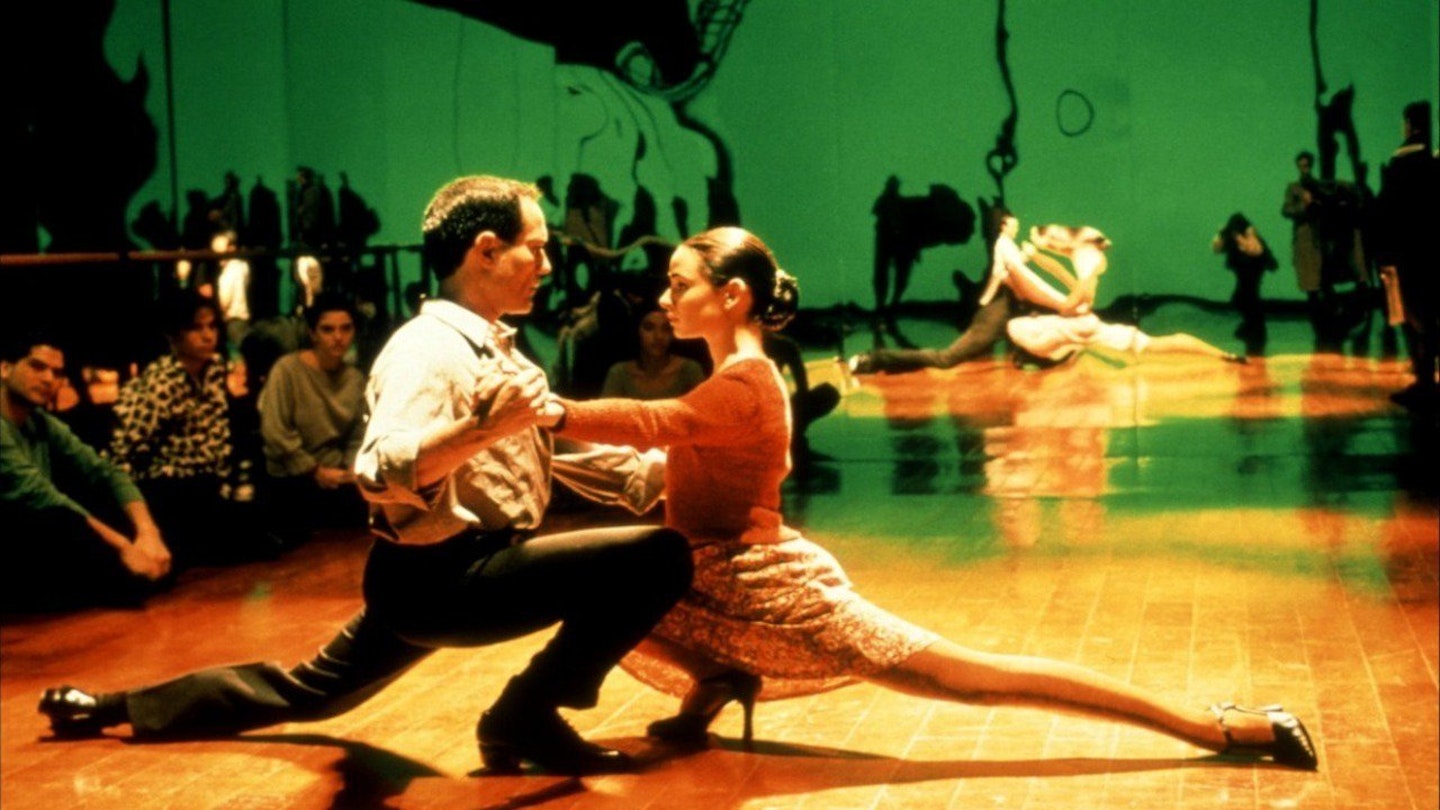This South American trifle offers yet more fleet-footed dramatics from Saura, the Spanish-born director fond of using traditional modes of dance as a means to challenge and redefine the relationship between cinema and its artistic ancestors, theatre and opera. However, it's been a long time since his austerely choreographed adaptation of Lorca's Blood Wedding and his hot-blooded overhaul of Bizet's Carmen and the director's recent output seems somewhat careworn by comparison.
Operating on several narrative planes, Tango is primarily a love story between middle-aged, recently separated Sola, a Buenos Aires-based director, and wannabe dancer Maestro, the bodaceous young mistress of a ruthless and jealous entrepreneur who has heavily invested in Sola's next venture - a movie about the evolution of the tango.
The film-within-the-film is a uniquely personal vision of the dance in relation to Argentina's modern history. It depicts the immigrant influx at the turn of the century and dark brutalities of military dictatorship through a studio-bound sequence of elegantly orchestrated and evocatively-lit set pieces. Saura's feature is a sensory delight, a rich infusion of colours and sounds that forms a fluid pageant of expressive physicality and reaches its emotional peak in two faultlessly executed scenes; the first, an extraordinary balletic dance of death: the second, an on-stage rehearsal of the climactic murder, giving a nail-biting edge to the familiar art-imitates-reality theme which permeates the action. Much more ponderous is the limping central romance which does for pace what glue might do on the bottom of the performers' shoes, and frequently earths the palpable sexual charge that accumulates in the intervening frames. Although lovers of the terpsichorean muse will not be disappointed, Tango is a film with plenty of sole but not much soul.
